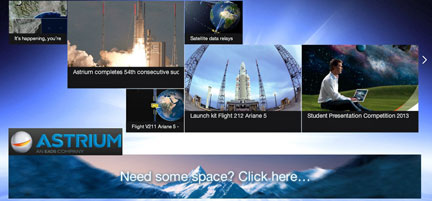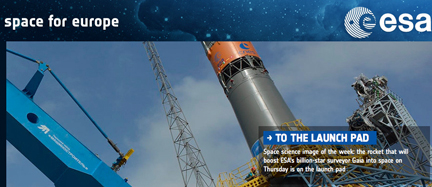
[SatNews] Astrium has been awarded a contract by the European Space Agency (ESA) for the operation and exploitation of the European components of the International Space Station (ISS) as lead industrial partner.
The contract covers the period 2013-2014 and is valued at 195 million euros, including 44 million euros for the procurement of spare parts and the development of solutions to maintain and improve the functional aspects of the European Columbus space laboratory. This contract forms part of the long-term service agreement between ESA and Astrium for the planned service life of the ISS, through to 2020.

Astrium has been managing all activities related to the operation of the ISS’s European components on behalf of ESA for nearly 10 years. Astrium’s responsibilities include astronaut training for the European components of the space station as well as maintenance, spare parts procurement and the logistics necessary to support the continued operation of the Columbus space laboratory. German ESA astronaut Alexander Gerst is scheduled to fly out to the ISS in May 2014 for a six-month mission. To prepare for his work aboard the space station, he too has been trained by Astrium instructors.
Other forms of support provided by Astrium include developing solutions to improve the functional aspects of the laboratory and helping scientists to design new experimental payloads. Data transfer, communication systems and ground station maintenance are also among the services provided by Astrium under the contract.
In its role as prime contractor for the provision of services to users of the European components of the ISS, Astrium leads a consortium consisting of some 40 industrial partners in the 10 European countries participating in the International Space Station program.
In its capacity as prime contractor for the Columbus space laboratory and many of its payloads, and for the ATV (Automated Transfer Vehicle), Astrium has made significant contributions to the International Space Station. Now that they have been integrated in the ISS, Astrium continues to play a key role in their operation and exploitation. According to the present plans of the participating countries, the International Space Station will remain in operation until 2020, if not longer.
The Columbus space laboratory is Europe’s main contribution to the International Space Station. It provides facilities for carrying out experiments in numerous scientific disciplines under space conditions. Assembly of the ISS was completed in 2010, and for a minimum of another 10 years it will now be devoted to the advancement of scientific knowledge and technological research, with an emphasis on physics, materials science, biology and medicine. Certain experiments are even conducted using instruments installed outside the Columbus module, such as sensors to measure the effects of intense solar radiation. To enable the space laboratory to fulfill its intended purpose, it is important that each series of experiments is precisely coordinated in order to obtain optimal results.

